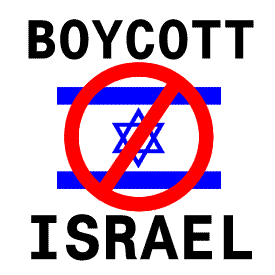
As a political tactic, boycotts are routine. They offer a legal and non-violent way to express displeasure. If you don’t like what someone is doing, don’t buy his goods.
Thomas Walkom
Talk about overkill. Criticisms of a Jewish-Palestinian peace group for its attempts to boycott a Montreal shoe store have gone way over the top.
Quebec Conservative MP Steven Blaney told the Canadian Jewish News that the boycott, called last fall to protest the store’s sale of Israeli-made shoes, verges on “economic terrorism.”
Liberal MP Marlene Jennings says boycott efforts by the group Palestinian and Jewish Unity are “anti-democratic” and “bullying.”
In fact, the boycott is none of those. It has involved neither violence nor threat of violence.
Palestinian and Jewish Unity is a middle-of-road group that decries terrorism, calls for a two-state solution to the Middle East impasse and has spoken out forcefully against recent attacks on Montreal synagogues.
The protesters, who hand out leaflets outside Le Marcheur shoe store once a week, haven’t tried to physically block anyone from entering it. Nor have they menaced its owner.
In fact, they temporarily suspended their boycott this week when a far-right, anti-Semitic organization threatened to join in.
So why the fuss?
In part, the answer has to do with the involvement of Amir Khadir, a popular left-wing Quebec politician. Few paid attention until he joined the demonstrators last month.
It also has to do with the fact that Le Marcheur, a small business, isn’t terribly powerful (although neither are the protesters). This week even Khadir revised his initial support for the boycott, arguing that the product – rather than the store – should be targeted.
But the real reason for the outrage leveled against boycott organizers is that they are taking aim at Israel.
As a political tactic, boycotts are routine. They offer a legal and non-violent way to express displeasure. If you don’t like what someone is doing, don’t buy his goods.
Boycotts were used to great effect by Mahatma Gandhi’s independence movement in British India and by opponents of apartheid in South Africa.
The California grape boycott of the 1960s helped to win union rights for fruit pickers there. The Kraft boycott of the 1970s, aimed at the giant multinational’s control over Ontario cheese production, was less successful.
Tibetan rights activists routinely call for the boycott of Chinese-made goods to support their cause. Last August, the Jewish Defence League called for a boycott of this newspaper.
No politician has labeled these efforts – however misguided – as economic terrorism. That’s because they aren’t.
And neither are current peaceful attempts to boycott stores that sell Israeli-made goods.
The Israeli boycott movement is part of an effort to persuade that country to end its illegal occupation of the West Bank and East Jerusalem. It has had mixed results.
Since 2006, the movement has tried to persuade shoppers not to patronize Chapters and Indigo. Yet the last time I was in Indigo, the store was jammed.
Boycott forces claimed a victory this month when the Hudson’s Bay Company dropped a line of Israeli-made cosmetics. The company denied that the protests affected its decision.
So far, Palestinian and Jewish Unity hasn’t persuaded Le Marcheur to drop its line of Israeli footwear. My guess is that the store will end up selling more.
But the protesters have managed to raise the profile of a cause that, most of the time, operates below the media radar. Thanks to this week’s front-page coverage in the Star, more Canadians now know there is a boycott effort.
Will that increase support for this form of protest against Israeli government policy? If the country’s mainstream politicians have their way, the answer is a clear no. The views expressed in this article are the sole responsibility of the author and do not necessarily reflect those of this Blog!